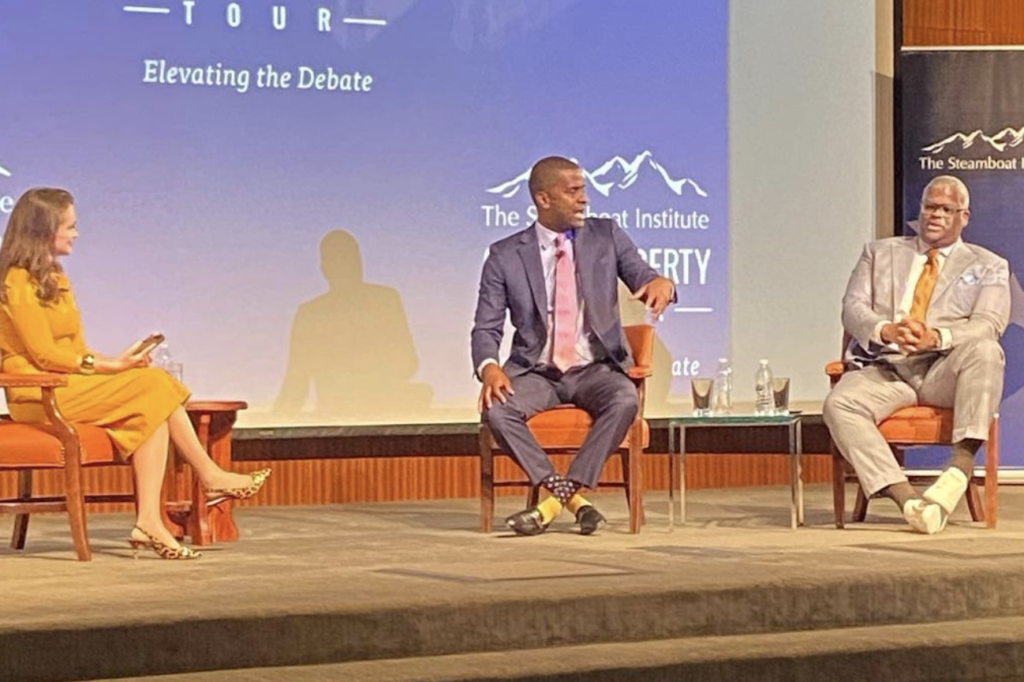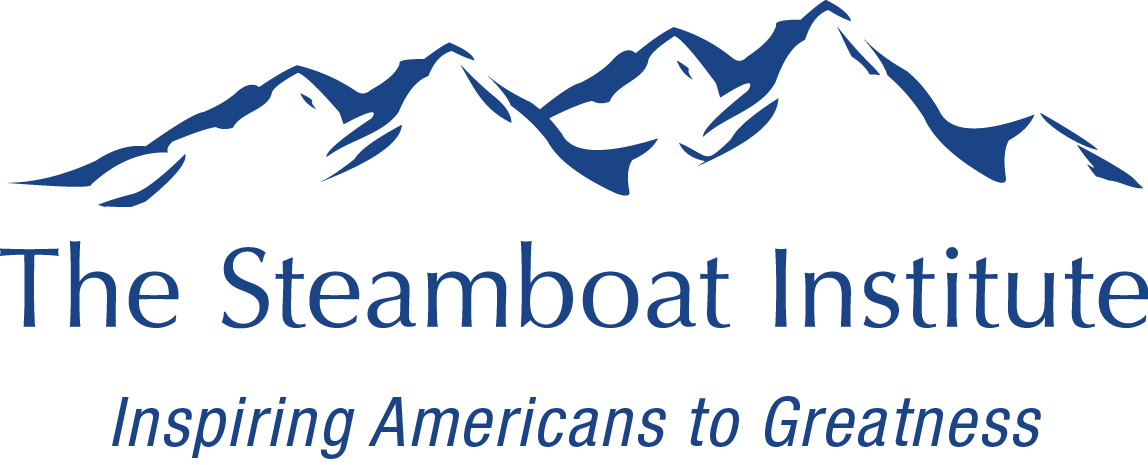
by Anthony Jones, a member of the Emerging Leaders Council
On October 26, 2021, students and other community members gathered at the University of Texas in Austin to hear two different perspectives on how to help Americans attain personal prosperity. The men offering these perspectives were Charles Payne, the host of “Making Money” on Fox Business Network, and Bakari Sellers, a CNN political commentator and former state representative of South Carolina.
The debate was moderated by Tony Blankley Fellow Carrie Sheffield and hosted by the Steamboat Institute in collaboration with the Salem Center, the LBJ School of Public Affairs, and The Sumners Foundation. Over the course of the evening, the guests discussed hot-button issues facing the country with a poise and mutual respect rare among ideological opponents.
The Beginning
Sellers began by noting that the biggest issue facing the county is not economic in nature, but social. “We have an empathy deficit,” he said, and although nothing about the country is irredeemable, that deficit can only be properly addressed by reimagining what the nation looks like. Sellers’ father was a civil rights activist whose bold confrontation of injustice inspired his son to challenge institutional obstacles to human flourishing in the same spirit.
When asked about the role of government in advancing civil rights, Sellers emphasized that all political change in the United States was made possible by individual sacrifices, but the government has an essential part to play in deconstructing systems which stand in the way of racial equity.
Payne, who was intimately familiar with poverty and violence while growing up on the streets of Harlem, agreed with Sellers that “there is a role for government” in addressing violations of civil rights. He stressed that the problem is not government itself, but the indefinite growth of government power.
Inflation & Beyond
The nature of inflation and possible solutions to the problem were the next topics of debate. Sellers acknowledged that inflation disproportionately hurts the poor but described it as a temporary situation caused by the pandemic. Payne, however, pointed to evidence of long-term inflationary trends which were exacerbated by President Biden’s declaration of war on fossil fuels. Payne noted that the unemployment insurance (UI) wage benefits extended to workers and families in response to the lockdowns of 2020 have only added to the problem, since they take away man’s industrious spirit.
Sellers had a different view of the UI benefits and said they testify to the need for a higher federal minimum wage. Payne strongly disagreed, noting that not many Americans are living on the federal minimum wage. Furthermore, he explained that when an employer overpays for an employee’s skillset, the employee is disincentivized from pursuing further skills training and trapped in a life of poverty. Instead of trying to change the minimum wage, Payne insisted students and employees should undergo upskilling to better compete for modern jobs.
The wage debate highlighted an important underlying theme that reappeared throughout the conversation. Sellers said that he wants hard working people to “not have to struggle,” while Payne rebutted that struggle is not all bad and serves as a helpful source of motivation for self-improvement. Although Sellers later conceded that “struggle is what binds a lot of us,” his earlier statement betrayed a progressive inclination toward eradicating human suffering. As Payne expressed, conservatism avoids this utopian goal by helping individuals find meaning in struggle while mitigating unnecessary suffering.
Q&A with the Audience
This philosophical detour was followed by a question-and-answer period that allowed audience members to participate in the discussion. After largely agreeing that immigration is a complex issue and that the U.S. Immigration and Customs Enforcement (ICE) should not be abolished, the debaters addressed education and its role in helping attain prosperity, where they sharply diverged in opinion. Payne insisted that the primary obstacles to quality education are curricula that lack rigor, while Sellers laid the blame on “inherently flawed” school funding mechanisms.
While the men disagreed on the nature of Critical Race Theory (CRT), they affectionately shared a fist bump after agreeing on the importance of education that accurately depicts the history of all groups of people who contributed to the prosperity we enjoy today. This note of unity was a fitting way to end the lively debate, which served as a shining example of civil public discourse.

